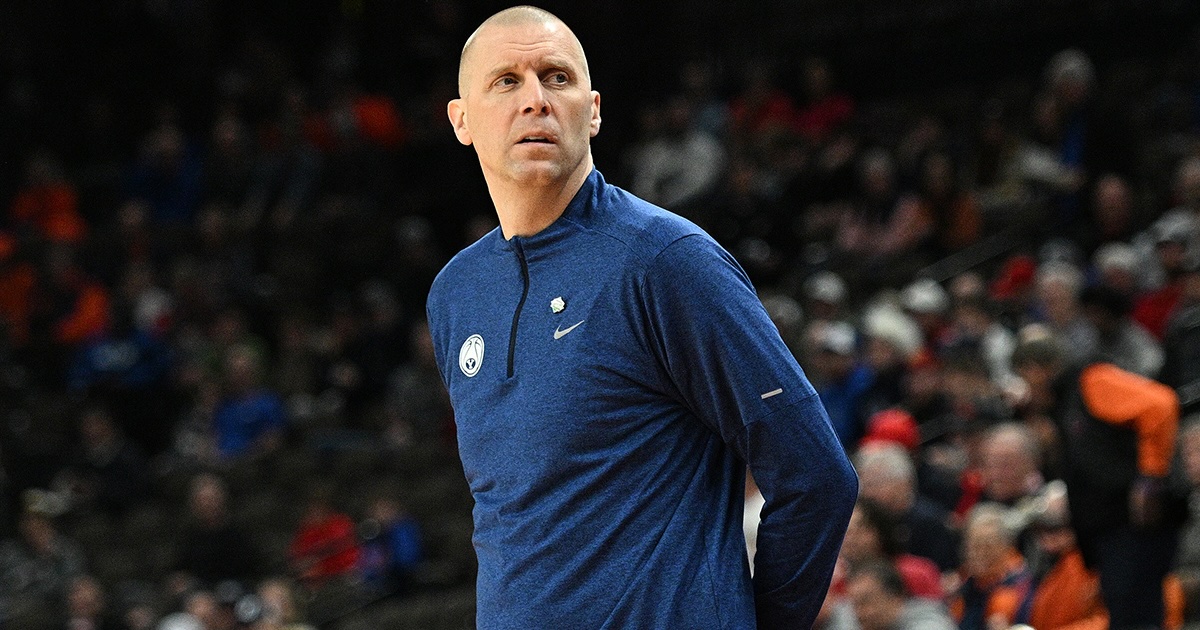Unveiling Mark Pope’s Positive Coaching Approach
In the world of college basketball, where pressure and high stakes often lead to intense and sometimes abrasive coaching styles, Mark Pope stands out with his unwavering positivity. As the head coach of the Kentucky Wildcats, Pope’s approach is a breath of fresh air, focusing on encouragement, confidence-building, and fostering a supportive environment for his players. This unique style, observed up close during Kentucky’s NCAA Tournament game against Troy, reveals a coach who prioritizes uplifting his team rather than tearing them down. But how effective is this positivity in the high-pressure environment of the NCAA Tournament? Can a coach’s optimistic demeanor truly translate into wins on the court? Let’s delve deeper into Pope’s philosophy and explore its potential impact.
Mark Pope’s coaching style is a stark contrast to the stereotypical image of a demanding, critical coach. Instead of yelling or berating his players, Pope chooses to communicate with encouragement and constructive feedback. He’s often seen clapping, slapping hands with players, and offering words of support. This positive reinforcement creates a culture of confidence within the team, where players feel empowered to take risks and learn from their mistakes. Pope’s vocabulary is filled with words like “super,” “amazing,” and “unbelievable,” reflecting his genuine enthusiasm for his players’ efforts. He emphasizes the importance of facing challenges and adversity, but always reminds his team of the incredible opportunity they have to play basketball at the University of Kentucky. This approach not only motivates the players but also creates a positive atmosphere that fosters growth and development.
Assistant coach Cody Fueger, who has worked with Pope for over a decade, highlights the coach’s commitment to building a culture of confidence within the team and staff. Pope believes in empowering everyone around him to get better, fostering an environment where positivity fuels continuous improvement. This approach extends beyond the players, creating a cohesive and supportive team dynamic. But the question remains: can this positivity truly translate into success on the court, especially in the pressure cooker of the NCAA Tournament? While some coaches rely on intimidation and harsh criticism to motivate their players, Pope’s method offers a different path, one that emphasizes encouragement and belief in his team’s abilities.
The Contrast: Positivity vs. Traditional Coaching Styles
The world of basketball coaching is filled with diverse personalities and approaches. Some coaches are known for their fiery temperaments, intense criticism, and demanding expectations. These “yellers, screamers, and intimidators,” as they’re often called, believe that pushing players to their limits through tough love is the key to success. On the other hand, coaches like Mark Pope take a more positive and supportive approach, focusing on encouragement and building confidence. This contrast raises a fundamental question: which style is more effective in today’s game? While both approaches have their merits, Pope’s positivity offers a refreshing alternative, particularly in an era where mental health and player well-being are increasingly prioritized.
John Calipari, Pope’s predecessor at Kentucky, was known for his passionate and sometimes confrontational style. Calipari often engaged with officials, advocating for his team and challenging calls. While his approach yielded significant success, it also differed greatly from Pope’s more measured and optimistic demeanor. Every coach has their own unique style, and what works for one may not work for another. Pope’s style is authentically his own, a reflection of his personality and beliefs. He admits that he initially tried to emulate his college coach, Rick Pitino, but quickly realized that it wasn’t the right fit for him. Pope’s positivity is not a facade; it’s an integral part of who he is as a coach and a person.
Jaxson Robinson, who played for Pope at BYU before joining Kentucky, emphasizes the effectiveness of Pope’s positive approach. Robinson notes that Pope’s unwavering encouragement and constructive feedback build confidence in his players, particularly in high-pressure situations. This positive voice in their ear reminds them to keep going and believe in their abilities. Robinson’s experience highlights the impact that a coach’s positivity can have on a player’s mindset and performance.
Building Confidence: The Key to Success
In the high-stakes environment of the NCAA Tournament, confidence is paramount. Players need to believe in themselves and their teammates to perform at their best. Mark Pope’s coaching style is specifically designed to cultivate this confidence. By providing positive reinforcement and encouragement, Pope empowers his players to take risks and make plays without fear of failure. This approach is particularly crucial for players who may be struggling with their performance, as it helps them stay positive and focused on improvement. Pope’s belief in his players, even when they’re going through a rough patch, can be a game-changer in the tournament.
Take the example of Trent Noah, a freshman guard who had been struggling with his 3-point shooting. Despite his recent slump, Noah stepped up in Kentucky’s first-round game against Troy and nailed a crucial 3-pointer that sparked a key run. Noah credits Pope’s unwavering support for his ability to overcome his struggles and perform well in the tournament. “He’s so easy to play for, so fun to play for. He’s always building you up,” Noah said. “I can miss 30 in a row and he can tell me to shoot it like I made the last 10. That’s what makes it so easy for a shooter.” Noah’s experience highlights the power of positive reinforcement in building a player’s confidence and helping them perform at their best.
Koby Brea, another Kentucky guard, echoes Noah’s sentiments, describing Pope’s coaching style as a “breath of fresh air.” Brea notes that many players are used to being yelled at and coached by tough, gritty coaches. Pope’s positive approach offers a refreshing alternative, creating an environment where players can thrive. “Not many places around the country you can go to and be coached by somebody like this,” Brea said. “We’re so used to being screamed at, and the tough, gritty coaches. Everything about him is positive. As a player it really helps us thrive.” Brea’s words underscore the transformative impact that a positive coaching style can have on a player’s overall experience and performance.
The Verdict: Positivity as a Winning Strategy
While the power of positive thinking doesn’t guarantee victory in March Madness, it undoubtedly plays a significant role in shaping a team’s mindset and performance. Coaches like Danny Hurley, who may employ a more intense style, have also achieved success. Ultimately, the best coaches are those who are authentic and true to themselves. For Mark Pope, positivity is not just a coaching strategy; it’s an integral part of who he is. It’s the foundation upon which he builds his teams, fostering a culture of confidence, encouragement, and belief. As Kentucky continues its journey in the NCAA Tournament, Pope’s positive approach may prove to be a key factor in their success. It’s a reminder that in the high-pressure world of college basketball, a little positivity can go a long way.












